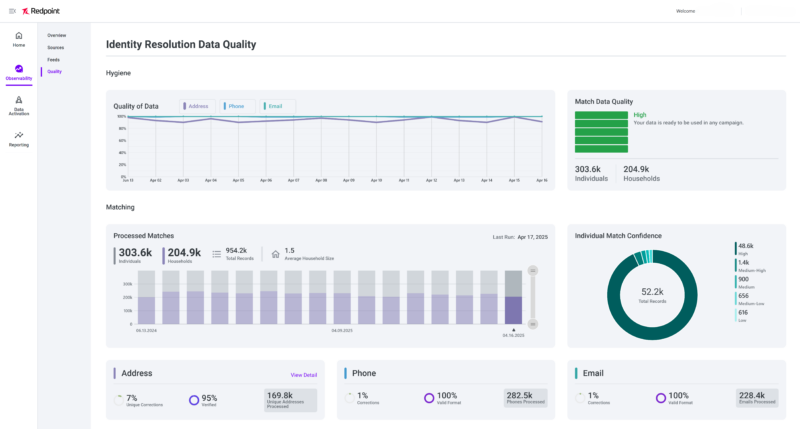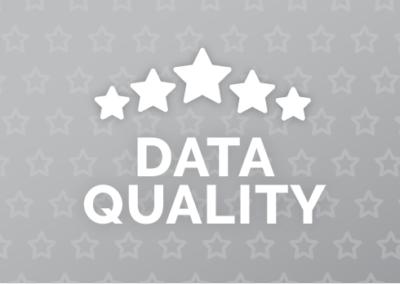REDPOINT DATA QUALITY
Fix Your Data. Fuel Your Results.
Data quality is the heart of data readiness. Redpoint goes beyond basic unification, continually cleansing your customer data with no-code automations for optimal agility and exceptional results.
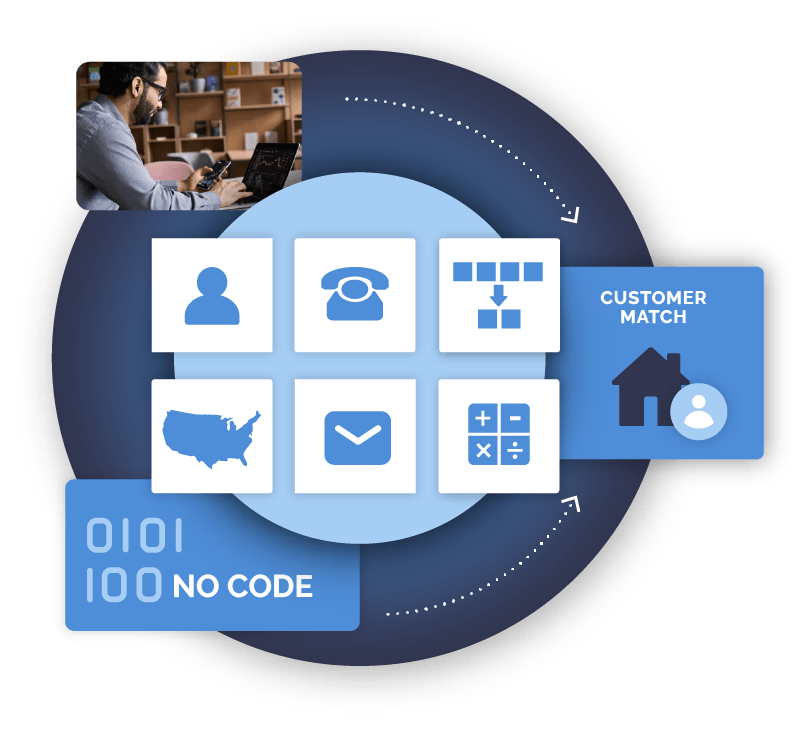

90% Automation
of manual data processes
80% Reduced
manual data prep
97% Reduction
in data processing time
90% Reduction in Costs
to get data fit for purpose
Great Data Powers Great Decisions
AI and customer engagement systems are only as intelligent as the data behind them. Redpoint strengthens your data foundation – so you can make confident decisions, deliver personalized experiences, and move fast.
Fix Errors Automatically — Before They Break Things
Bad data doesn’t wait to cause problems. Redpoint catches and corrects issues the moment they enter your system, so downstream processes stay accurate, efficient, and on track.

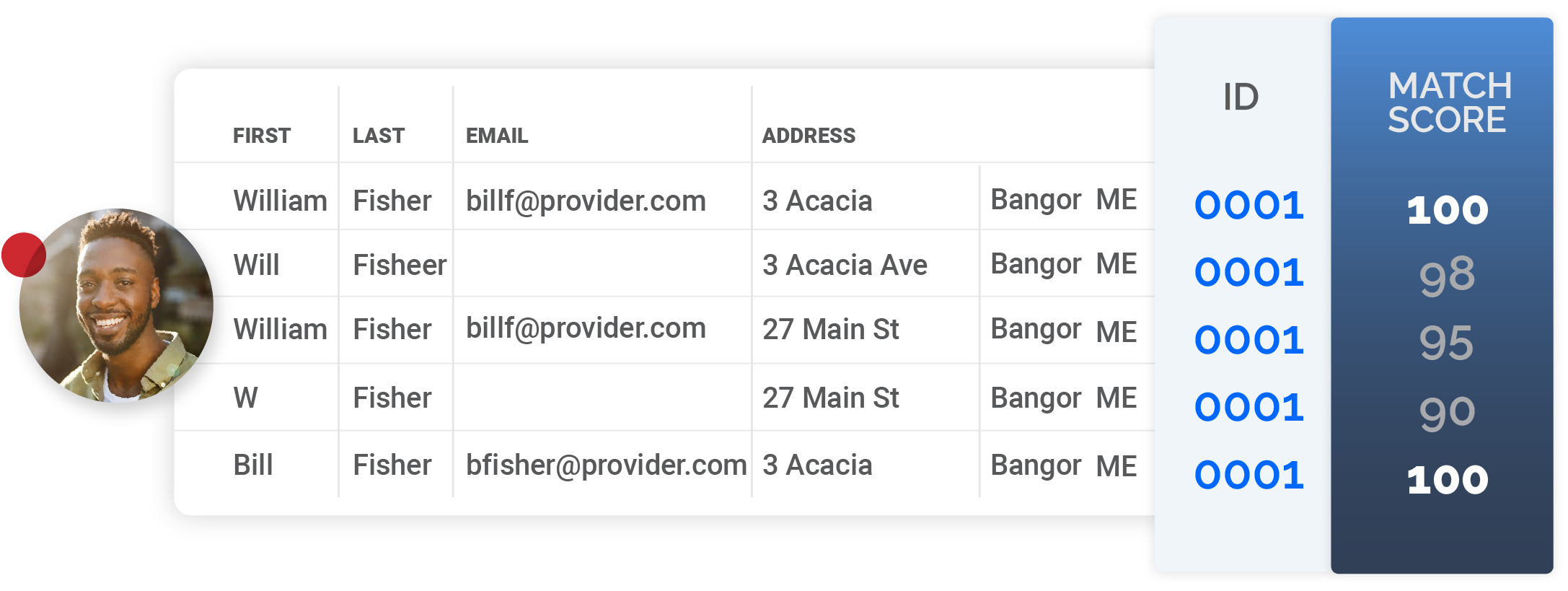
Create Sharper Profiles with Clean Data
Identity resolution only works when the input data is clean. Redpoint scrubs every record before resolution runs — giving you more accurate customer views and fewer duplicate profiles.
Free Your Teams from Data Maintenance
Redpoint’s intuitive, no-code interface eliminates the need for heavy IT involvement. No custom code. No cleanup marathons. Just click, configure, and go live. Fast.
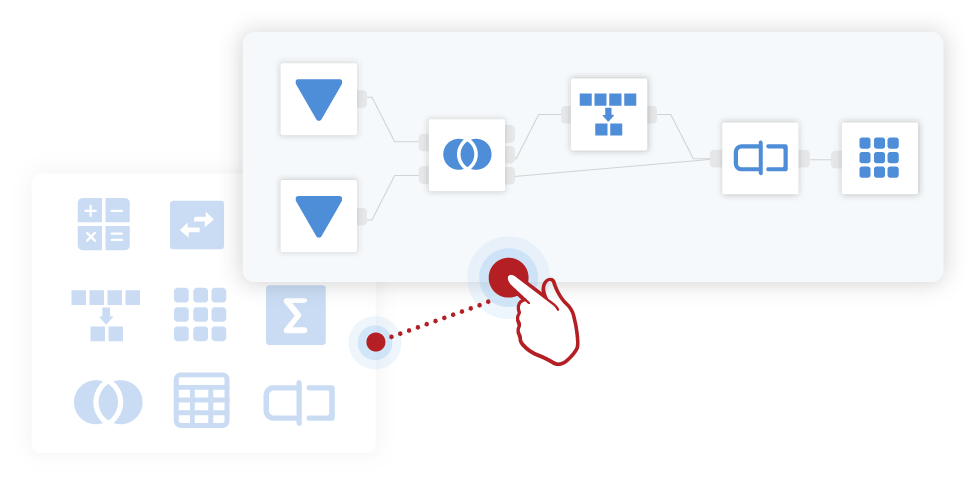
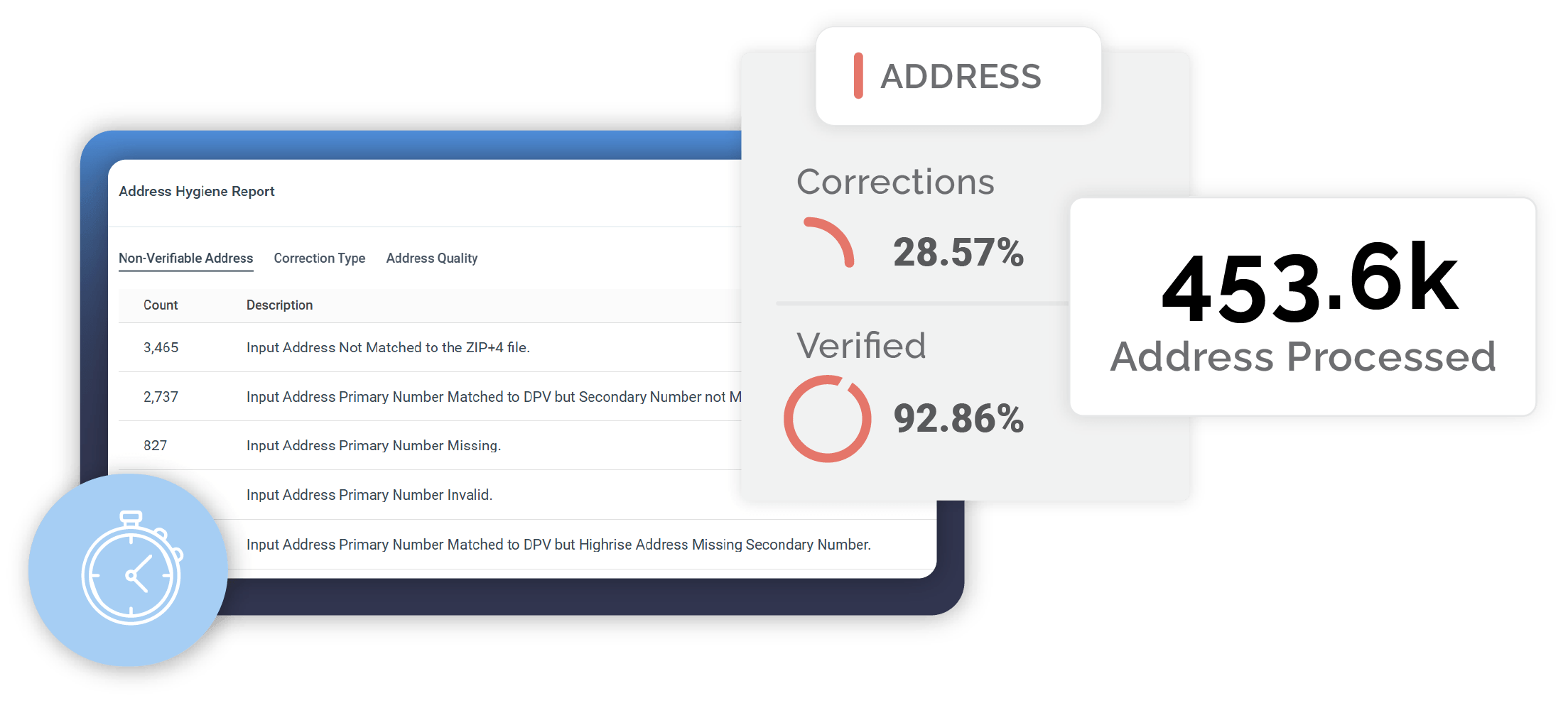
Operate at Enterprise Speed
Whether you’re cleansing thousands of records or millions, Redpoint delivers real-time results at enterprise scale. You stay ready to engage customers with timely, personalized experiences.
What You Get with Redpoint
Hands-Free Automation
Redpoint handles standardization, error correction, and data lookups automatically — no code required, and always running in the background.
Real-Time Data Hygiene
Data cleansing begins the moment new data enters your system, with no delays or manual steps. Redpoint keeps your data clean, current, and ready for activation.
Full Transparency
Visual tools show exactly how your data is performing. You can clearly connect high-quality data to better business outcomes — no black boxes, no guesswork.
Universal Data Support
Redpoint cleans more than just customer records. It supports your entire data ecosystem, including product, location, household, and organizational data, so any team across the enterprise can make smarter decisions.
Having all of our data available to us in one place, with the confidence that it is accurate, timely and comprehensive, has been the biggest asset in partnering with Redpoint.
CEO Regional Retailer
We can only do effective analysis and create successful offers because we have strong confidence in our data. Redpoint gives us that confidence.
Daniel Mathieus
AVP Information Technology, AAA
Being able to bring all the data together in one place, compare it, clean it, and provide a consistently clean piece of information – a single view of the truth – is critical.
Leading Technical Analyst
Global Activewear Brand
Data Quality Resources
Frequently Asked Questions
What is data quality?
Data quality is the process of accessing, monitoring and improving the fitness of an organization’s data for business use – making sure that data is accurate, complete, accessible and timely and that it meets the needs of an organization’s specific business, CX, or AI use cases. Data quality processes are a core pillar of data readiness, ensuring trustworthiness of customer data. Those processes include data cleansing, data parsing, data standardization and data enrichment.
Why is data quality important?
Data quality is the central task for ensuring that “dirty” data is never used for analytics, machine learning, AI, marketing, or for developing an inaccurate understanding of a customer, household or business entity. It is important for:
- Detecting and correcting disparities and errors within a data set to ensure data is accurate, consistent, complete and that it conforms to an enterprise standard.
- Converting data from one format to another, using automation to identify relevant data elements from various sources and formats. Data parsing makes sense of unstructured or unrecognized data by converting it into a structured format that can be analyzed, such as converting an HTML file into plain text or extracting relevant data from email or social media.
- Converting data elements into a consistent, unified format, such as converting an incorrectly entered DD/MM/YY format into MM/DD/YY
- Improving or enhancing an existing data set by adding additional information from external sources or by calculating data aggregates to improve an understanding of a customer or household.
How do you measure data quality?
Data observability is an important way to measure data quality. Real time dashboards that automatically monitor and report on data quality provide marketers and business users of customer data with confidence in the output of AI and CX initiatives. Data observability identifies broken data, poor data quality and data discrepancies – giving users the ability to identify and fix issues quickly and in advance of downstream issues.
Why do B2B marketers have to prioritize data quality and AI?
B2B marketers face rising expectations from buyers who demand the same level of personalization and relevance they experience as consumers. Delivering that kind of customer experience requires data that is accurate, timely, and usable in the moment. Poor data quality leads to missed opportunities, irrelevant outreach, and wasted investment in AI and automation. When marketers prioritize data quality and readiness, they create the foundation for AI to surface actionable insights, predict customer needs, and deliver truly personalized engagement at scale. In B2B, the ability to meet buyers with relevance in every interaction is what builds trust and drives revenue.
How does data quality impact the trustworthiness of AI-driven decisions?
AI is only as effective as the data it draws from. Without clean, unified, and contextual customer data, AI-driven insights fall flat, producing generic or even misleading interactions. Data readiness – ensuring data is accurate, accessible, and aligned to business use cases – is what transforms AI into a competitive advantage. When organizations can trust their data, they can also trust the decisions AI recommends. High-quality data allows AI to uncover deeper insights, detect patterns with confidence, and personalize engagement at scale. Instead of second-guessing results, teams act quickly knowing outputs are grounded in reliable information.

